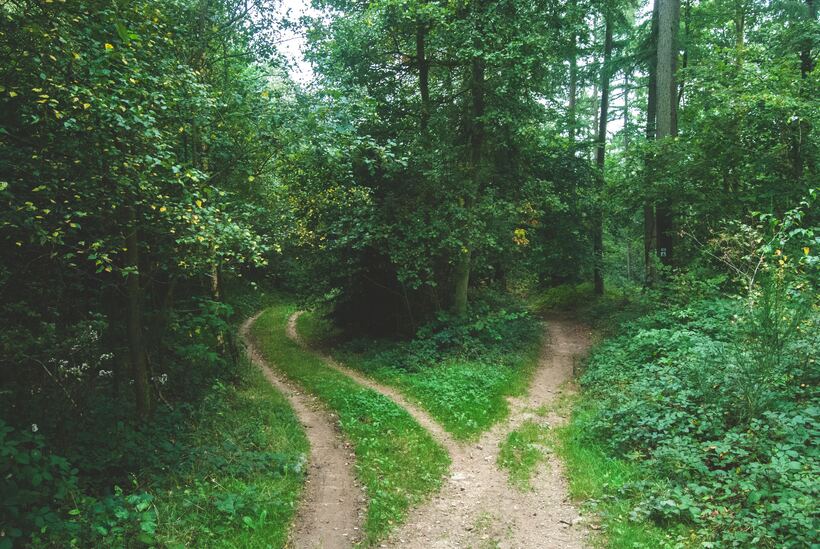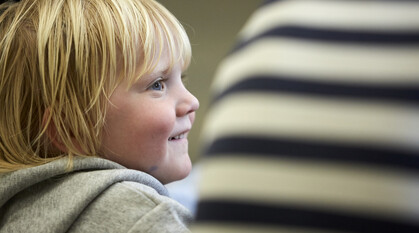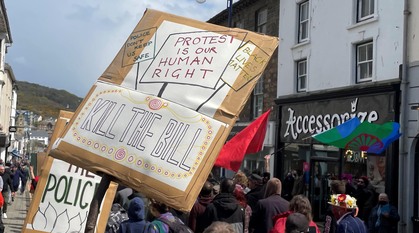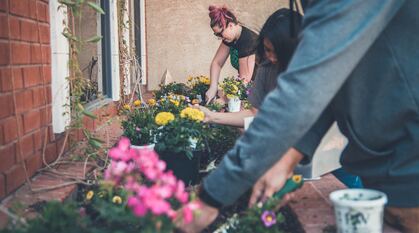Why we must keep up the work of ecological transformation
Three years ago, the Pope called on faith groups to work on climate change. Paul Parker reflects on what progress has been made – and what remains to be done.

How do you solve a problem like climate change? I'd be lying if I said I knew exactly how to ditch our dependence on fossil fuels overnight, but as Quakers, we know that averting our climate crisis, with all the urgency it requires, involves radical transformation. That's a transformation of our inward and outward lives: our hearts and minds, our relationship to the planet, our communities, and the way we govern our resources.
We're not the only ones who see this. The Roman Catholic Church – a rather different beast to Quakers – has reached the same conclusion. Pope Francis has recently been giving a message that is remarkably similar to ours. We must, he says, undergo an 'ecological conversion'. That's about transforming our personal relationship to the planet, as well as a fundamental shift away from fossil fuels within our economic and political institutions.
Pressure works
This message lay at the heart of a gathering of 400 faith and community leaders, diplomats, activists, and experts at the Vatican that I attended in early July. It marked the third anniversary of Laudato sì, a radical statement by Francis on our relationship with the environment and the need for economic and personal transformation. In its 246 pages, Friends will find much to agree with, and resonances with the leadings of our recent Yearly Meetings. I was there to represent Friends as part of the global dialogue that Francis hopes to foster ahead of the United Nations COP24 climate talks in Poland this December.
Hearing speakers from communities on the front lines of climate change was a powerful reminder of what's at stake. They spoke of melting ice, vanishing forests, and failing rains. I met a man from the island nation of Tuvalu who described seeing his father's old school now under a metre of sea water thanks to a rapid rise in sea levels.
Yet we also heard of hope. Addressing the conference, Francis sought to embolden the climate justice movement, calling for engagement by citizens' pressure groups worldwide. There were stories of success from pressure groups, governments and grassroots communities working to cut emissions and keep fossil fuels in the ground.
But there is a long way to go. Bill McKibben of fossil-fuel divestment campaign 350.org challenged the Vatican Bank to divest – something which Quakers in Britain did four years ago – and the Polish president of the upcoming COP24 climate talks spoke of challenges the UN process will encounter.
All talk, no action?
[QUOTE-START]
We do not own the world, and its riches are not ours to dispose of at will. Show a loving consideration for all creatures, and seek to maintain the beauty and variety of the world. Work to ensure that our increasing power over nature is used responsibly, with reverence for life. Rejoice in the splendour of God's continuing creation.
- 1.42 Advices & queries
[QUOTE-END]
Francis's call for emboldened, empowered citizens stayed with me. That is all too clear to us in this country. The UK led the way in 2008 with its ground breaking Climate Change Act, which legally obliged the government to cut UK emissions. Yet we must remember that this success came off the back of a groundswell of grassroots groups demanding the government took action.
And we need that groundswell again today. The UK government has made some promising pledges on climate change recently, including that it intends to set a national 'net-zero emissions target'. But actions speak louder than words. In reality, the UK is falling short of its emissions reduction targets and continuing to back high carbon projects like fracking and airport expansion. If a privileged nation such as ours can't lead the way in carbon reduction, who can? That's why Quakers in Britain, alongside other faith groups and campaigners, are demanding bold leadership from government.
It's time to not only increase the ambition on climate change but set policy and investments to ensure we meet it. Whether it's investing in energy efficiency, phasing out polluting cars, or supporting renewables, the government can and should decide now to put its money where its mouth is.
Find out more about our climate justice work and how to get involved


